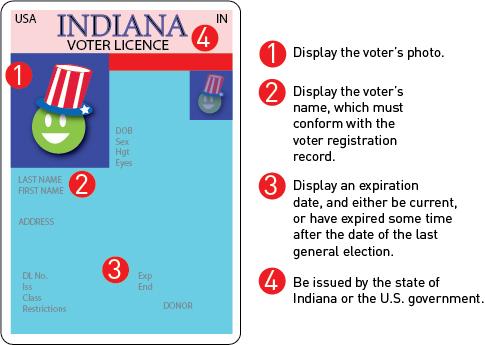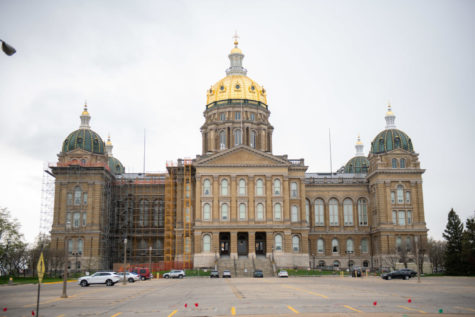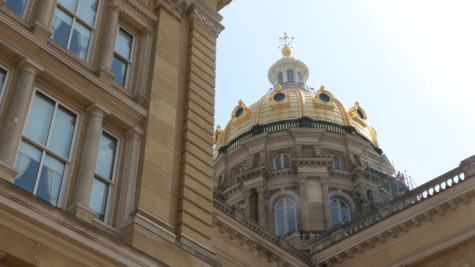Photo ID requirement for voting considered in Iowa

Graphic: Samantha Barbour/Iowa State Daily
Voter license requirement
March 24, 2011
People across Iowa could see a change in the election system as early as July if Iowa Secretary of State Matt Schultz’s plan to require a photo ID in order to vote is put into action.
Several other states such as Indiana, whose law will be the model for Iowa’s, have enacted more restrictive election laws, which require voters who cast a ballot in person to provide a photo ID, meeting the proper criteria to verify the voter’s identity.
Schultz originally campaigned on this premise, saying he would continue to pursue this change once he entered office.
“He campaigned on the issue of photo ID and he was sent to this office overwhelmingly by the voters of Iowa, who agreed with him and they would like to see it,” said Stephanie Launder, communications director for the Iowa Secretary of State. “Basically, I think it was just to reassure voters that there was never going to be the option for fraud in the state.”
Schultz will be touring the state in April as a part of his duties as Iowa Secretary of State. During this tour, Schultz will be meeting with voters to gain support for the law.
“I think it showed when he was elected that most Iowans are supportive of this,” Launder said.
But some, like Sen. Herman Quirmbach, D-Ames, disagree on the basis that the proposed legislation is essentially “a voter suppression bill.”
“It’s going to make it harder for the elderly, it’s going to make it harder for students to vote and there is not even a fig leaf of justification,” Quirmbach said. “There is no voter impersonation fraud in Iowa.”
The county auditors throughout the state have also become involved in the controversy because of their direct participation in the election process.
“They’re the boots on the ground who run the election process,” Quirmbach said. “So if anybody knows what the facts are, it’s the county auditors and, to my knowledge, not a single one is supporting this effort.”
The Iowa State Association of County Auditors released a report in February on using photo IDs for voting purposes, which gave some recommendations and looked into two other states — Indiana and Florida — which have had photo ID requirements for at least three general elections.
The first recommendation was a voter education and outreach program that would target those who don’t have an acceptable form of ID, such as college students, lower-income voters, the elderly and disabled voters. The report did note that this would require “a significant financial investment by the state” and this must be an ongoing commitment.
Indiana also provides a free photo ID card to those who do not have one, which Iowa’s county auditors listed as one of their recommendations, as well as free birth certificates, which are necessary to acquire a photo ID. This, along with administration and possible litigation costs, could create another expense for the state.
“I think it’s an unnecessary hassle for the voter and I think it’s an unnecessary expense for the auditors,” Quirmbach said.
But Launder said that won’t happen.
“We would look for ways that we would be able to get funds, so that if it was enacted it wouldn’t come out of other funds being cut because of that,” Launder said. “We are working with legislation in order to secure funds when and if needed.”
The use of college IDs is one controversy the bill is facing, which could be a potential problem for students. Indiana’s Secretary of State said that their government worked with state universities to make college IDs fit into the necessary requirements.
Iowa is still looking into and discussing this point, Launder said.
Those researching the bill are also looking into a caveat in Indiana’s law, that in order to obtain a free photo ID from the State, a person must provide a birth certificate, but in order to obtain that birth certificate, the person must show photo ID, according to the ISACA’s report. Researchers want to make sure that won’t be an issue in Iowa, Launder said.
The photo ID law in Indiana is viewed as a success by many because voter turnout has actually increased since 2005.
“Obviously we think our photo ID law works, and that it has been good not bad for Indiana elections,” said Jeremy Burton, outreach manager of the Help America Vote Act in Indiana. “It hasn’t lowered voter turnout, if anything it has increased confidence in the results of an election.”
In 2000, voter turnout was at 55 percent, but by the 2008 presidential election, turnout grew to 62 percent, according to the voter turnout statistics found on the Indiana government’s website.
But a law such as this will face continued criticism, because of the view that Schultz is pushing his own Republican agenda.
“This is about suppressing the vote, in particular groups and voters that tend to lean democratic,” Quirmbach said. “The secretary of state is politicizing the process.”















